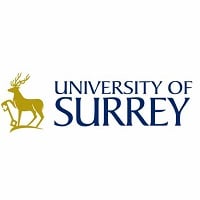Mathematics
Position Details (PhD Program)
From geometry, partial differential equations to fluid dynamics, meteorology, statistics and modelling in the life sciences, the Mathematics programme at the University of Surrey offers an extraordinary range of research opportunities that lie at the heart of the critical scientific questions of our age.
Our teaching staff are leaders in their fields, and they offer support for innovative research in a lively, inspiring and intellectually stimulating environment.As well as developing cutting-edge mathematics, Surrey’s research also involves innovative applications in areas such as data analytics, wave energy, drug development, ecology and biological systems.
Career opportunities
This PhD in Mathematics will give you extensive training for a career as a professional mathematician, ready for a future in academia, industry, government, or a wide variety of other fields. At the University of Surrey you’ll work closely with one or two supervisors, who you’ll meet frequently to discuss your research and your career development. They’ll oversee your progress, guide your critical thinking and offer advice throughout your studies.During the first few months of your PhD, you’ll enrol and attend a series of induction events, and work with your supervisor to design a personal development plan, which you’ll update throughout your PhD.You’ll complete a number of taught modules, including assessments, to broaden your mathematical knowledge. Most of these will be completed in your first year, with some completed in your second year. These include taught courses from MAGIC, the London Taught Course Centre and the Academy for PhD Training in Statistics, plus our own masters-level modules. You’ll also get training when attending department research seminars aimed at both staff and PhD students. On average, you’ll be attending approximately one or two research seminars a week.In your second year, you’ll be required to complete a confirmation report and pass an internal viva examination. You’ll present your research in your research group seminar and be encouraged to design a research poster. You’ll usually start working on your first research paper together with your supervisors in your second year.The last part of your PhD is all about advancing your research and completing your thesis. You’ll have regular meetings with your supervisor, who’ll work closely with you to help you manage your writing and make you critically reflect on the research you’ve done. Often, you’ll write and submit more research papers in this time.We encourage all PhD students to take part in research summer and winter schools, and to present work at national and international conferences. We can support your travel to these events.
Research themes
- Epidemiology and ecology
- Mathematical criminology
- Cellular systems and quantitative systems pharmacology
- Data science and statistical analysis
- Sleep and circadian rhythms
- Dynamical systems
- Analysis of Hamiltonian, dissipative and delayed PDEs
- Perturbation theory (regular and singular) and bifurcation analysis of Hamiltonian and near-Hamiltonian systems
- Numerics of differential equations, numerical bifurcation analysis
- Calculus of variations and nonlinear elasticity theory
- Multi-scale fluid flow analysis



 University of Surrey
University of Surrey